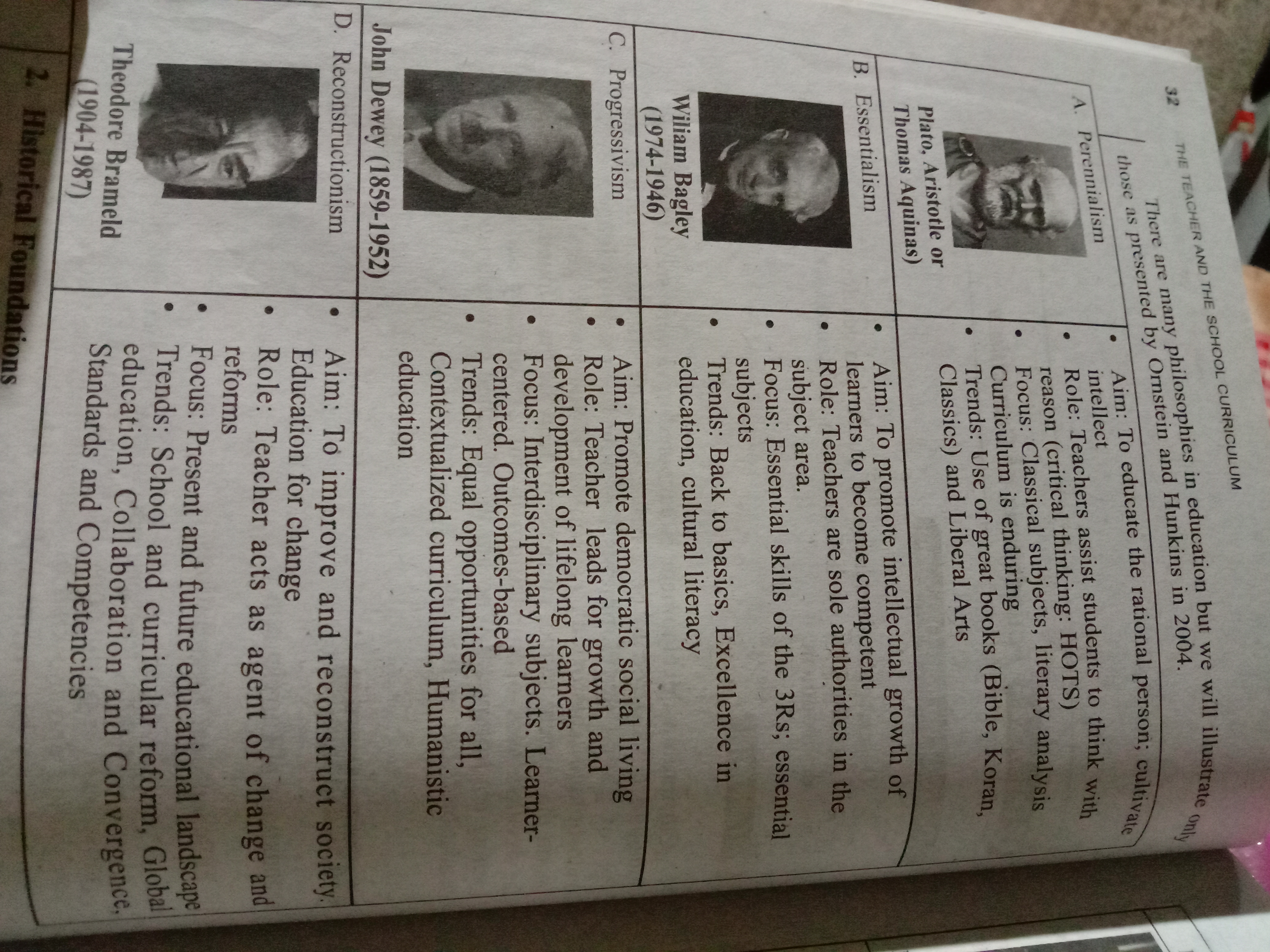What are the main educational philosophies presented by Ornstein and Hunkins in 2004, including their aims, roles, focus, and trends?

Understand the Problem
The question relates to various educational philosophies as presented by Ornstein and Hunkins in 2004. It includes aims, roles, focus areas, and trends associated with each philosophy: Perennialism, Essentialism, Progressivism, and Reconstructionism. It requires recognition and comprehension of each philosophy’s key elements.
Answer
Perennialism, Essentialism, Progressivism, Reconstructionism with specific aims, roles, focus, and trends.
Ornstein and Hunkins (2004) describe four main educational philosophies:
-
Perennialism:
- Aim: Educate the rational intellect.
- Role: Teachers guide critical thinking.
- Focus: Classical subjects.
- Trends: Use of great books and liberal arts.
-
Essentialism:
- Aim: Promote competence.
- Role: Teachers as subject authorities.
- Focus: Basic skills and essential subjects.
- Trends: Back to basics, cultural literacy.
-
Progressivism:
- Aim: Support democratic living.
- Role: Teachers foster growth.
- Focus: Interdisciplinary, learner-centered.
- Trends: Equal opportunities, humanistic education.
-
Reconstructionism:
- Aim: Improve society, enable change.
- Role: Teachers as agents of change.
- Focus: Present and future landscape.
- Trends: School reform, global education.
Answer for screen readers
Ornstein and Hunkins (2004) describe four main educational philosophies:
-
Perennialism:
- Aim: Educate the rational intellect.
- Role: Teachers guide critical thinking.
- Focus: Classical subjects.
- Trends: Use of great books and liberal arts.
-
Essentialism:
- Aim: Promote competence.
- Role: Teachers as subject authorities.
- Focus: Basic skills and essential subjects.
- Trends: Back to basics, cultural literacy.
-
Progressivism:
- Aim: Support democratic living.
- Role: Teachers foster growth.
- Focus: Interdisciplinary, learner-centered.
- Trends: Equal opportunities, humanistic education.
-
Reconstructionism:
- Aim: Improve society, enable change.
- Role: Teachers as agents of change.
- Focus: Present and future landscape.
- Trends: School reform, global education.
More Information
These philosophies guide different teaching methods and educational approaches, influencing how curricula are developed and implemented.
Tips
Confusing the specific roles and aims associated with each philosophy can lead to misapplication in curricular design.
Sources
- Prezi: Four Educational Philosophies - prezi.com
- Foundations of Curriculum - Course Material - studocu.com
AI-generated content may contain errors. Please verify critical information